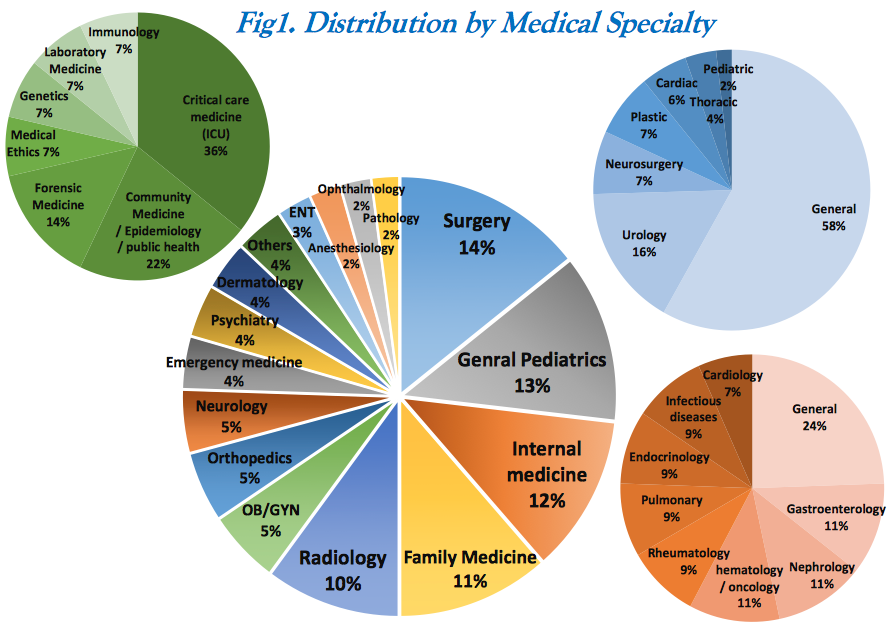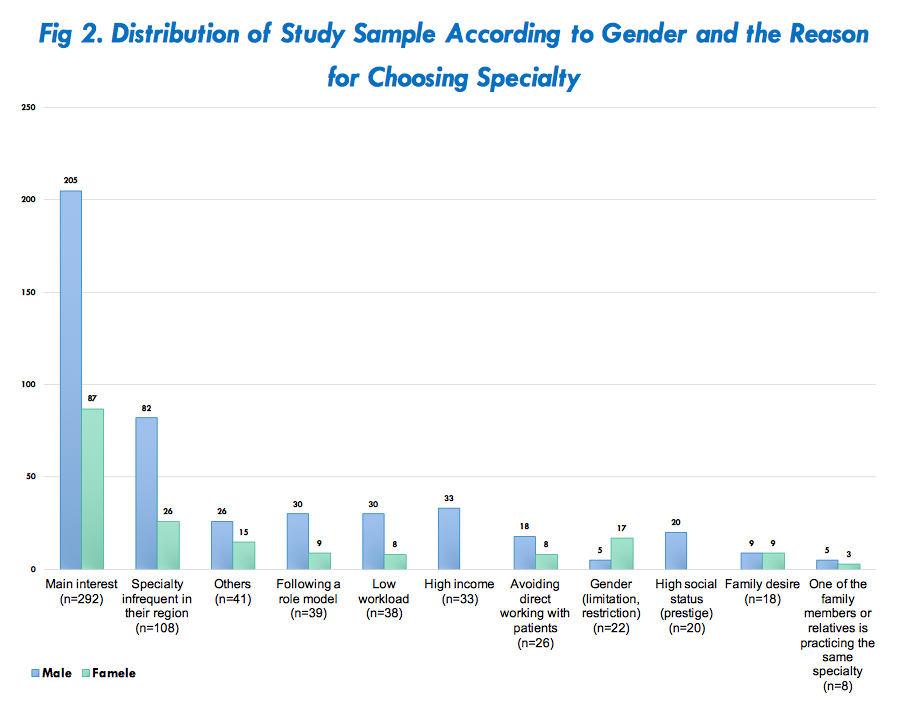


Theme
Undergraduate Research / Curricular Environments
INSTITUTION
King Saud University
College Of Medicine
Contact me at AlFuraihMD@gmail.com

There is limited regional data about the factors that determine the path medical school graduates should seek in order to choose an appropriate medical specialty. Medical specialties chosen by physicians play an important part in the development of healthcare services. The wide range of variant medical specialties and lack of knowledge about them mandate the need for research that can guide medical graduates to choose medical specialties that suite their interest and personality characters.
A national cross-sectional survey was emailed randomly to 1,249 practicing Saudi physicians registered in the Saudi Commission of Health Specialties. We recieved around 380 complete responses, the web-based validated questionnaire contained 29 questions covering demographic factors, personality characteristics, career motivations, working load, practicing environment, financial income, life goals. The responses were entered and analyzed using SPSS.
• The complete response rate was 30.7% among which,
• 69% of respondents were male.
• The mean age of the respondents was 38.
• The most common specialties were: surgery, general pediatrics, internal medicine, and family medicine (See Fig 1).

• Males were more satisfied with their jobs, along with those with a higher monthly income.
• The most common reasons for specialty choice were being the main interest area (76%), followed by scarcity of the specialty in the region (28%) (See Fig 2).
• Higher income potential and prestige of specialty influenced men’s specialty choice more than women.
• Gender limitations and restrictions had a greater influence on women’s specialty choice.
• Mental skills were judged as more important for psychiatry, internal medicine, radiology, and neurology. Manual skills were judged as more important for ophthalmology, and surgery (See Table 1 in more details section).

We conclude that many factors, from regional need to personality elements and personal goals, are taken into account in the process of choosing a medical specialty. Physicians judge different skills as important according to their specialty. Job satisfaction is derived from a variety of factors that differ among specialties.
This research can be a useful guide for medical students to become aware of the leading reasons behind every specialty choice. Learning about the most important features within every specialty can aid students in choosing their own future precisely.
 Send Email
Send Email